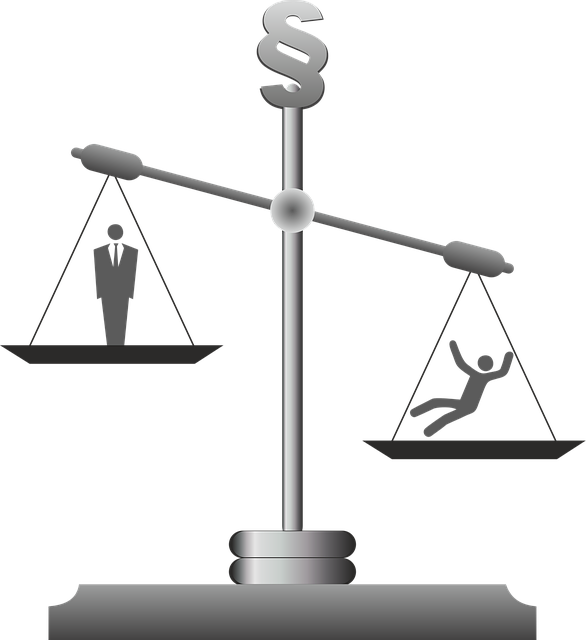The Process of Empaneling a Criminal Jury is a critical, meticulous dance governed by legal frameworks aiming for fairness and impartiality. Involving juror screening for biases and diverse perspectives, this process prioritizes unbiased decision-making, protected rights, and public trust. Key steps include selection from diverse pools, questioning (voir dire), peremptory challenges, and neutral judicial oversight to manage biases and ensure successful outcomes. Transparency is crucial while balancing open discussions with confidentiality to maintain integrity and public perception in high-stakes cases.
“Uncovering the intricacies of regulatory compliance in criminal trials, this comprehensive guide delves into vital aspects of jury selection. From understanding the legal framework governing the process to ensuring fairness and diversity among jurors, we explore essential criteria.
The article illuminates the intricate steps involved in the process of empaneling a criminal jury, offering practical best practices for seamless execution. Moreover, it addresses common compliance challenges, emphasizing ethical considerations to enhance transparency throughout.”
- Understanding Legal Framework for Jury Selection
- Criteria for Qualifying Jurors: Fairness and Diversity
- Process of Empaneling: Steps and Best Practices
- Common Compliance Challenges in Criminal Trials
- Ensuring Transparency: Overcoming Ethical Hurdles
Understanding Legal Framework for Jury Selection

The process of empaneling a criminal jury is governed by a complex legal framework designed to ensure fairness and impartiality in high-stakes cases. This intricate dance involves meticulous procedures aimed at selecting an unbiased panel capable of deliberating decisions with significant consequences. The framework varies across the country, but key principles remain consistent, focusing on protecting the rights of both defendants and plaintiffs while maintaining public trust in the justice system.
Understanding this framework is crucial when navigating unprecedented track records in litigation. Juror selection goes beyond simply choosing individuals; it involves screening for biases, experiences, and perspectives that could influence their decision-making. This thorough process ensures a jury’s ability to consider all evidence objectively, ultimately reaching verdicts based on the merits of the case, rather than personal prejudices or preconceptions.
Criteria for Qualifying Jurors: Fairness and Diversity

The process of empaneling a criminal jury involves careful consideration of various criteria to ensure fairness and diversity among jurors. One key aspect is establishing an unbiased pool of potential jurors who can set aside personal biases, prejudices, or preconceptions regarding the case. This includes evaluating their understanding of legal concepts, willingness to follow the law as instructed by the judge, and ability to render a verdict based solely on the evidence presented. An unprecedented track record of successful jury selection across the country underscores the importance of this meticulous process in maintaining judicial integrity.
Diversity plays an equally significant role, as it not only enhances jury composition but also contributes to a more comprehensive understanding of different perspectives within the community. Jurors from diverse backgrounds bring unique insights that can enrich deliberations and ensure fair representation for all parties involved. Throughout all stages of the investigative and enforcement process, maintaining fairness and diversity in juror selection remains paramount for upholding the integrity of the criminal justice system.
Process of Empaneling: Steps and Best Practices

The Process of Empaneling a Criminal Jury involves several crucial steps designed to ensure a fair and impartial panel for high-stakes cases. It begins with the selection of prospective jurors from a pool, often achieved through random draws from voter registration lists or other public records. This initial phase is vital for building a diverse jury that represents the community, free from bias or prejudice. Next, potential jurors are summoned to court where they undergo extensive questioning, known as voir dire, to assess their suitability. Attorneys from both sides have the opportunity to challenge prospective jurors through peremptory challenges or challenges for cause based on predetermined criteria, aiming to seat a jury capable of rendering winning challenging defense verdicts in cases involving white-collar and economic crimes.
Best practices during empaneling emphasize maintaining a neutral demeanor, ensuring clear and consistent communication, and providing thorough instructions to the pool of jurors. Judges play a pivotal role by impartially presiding over the process, guiding discussions, and making final decisions on juror selection. Effective empaneling strategies are critical for managing potential biases, ensuring fair treatment, and ultimately contributing to successful outcomes in complex legal proceedings.
Common Compliance Challenges in Criminal Trials

The process of empaneling a criminal jury is a critical stage in any high-stakes case, where the fate of a defendant hangs in the balance. However, ensuring a fair and impartial jury selection can be fraught with challenges, particularly for attorneys advocating on behalf of their clients across the country. One significant hurdle is managing potential biases and prejudices that may exist among prospective jurors, who often form preliminary opinions based on media coverage or societal narratives surrounding criminal trials.
These common compliance challenges require meticulous strategies during jury selection. Attorneys must navigate a delicate balance, asking insightful questions to uncover hidden biases while adhering to legal guidelines. The goal is to seat a jury composed of individuals who can set aside preconceived notions and make decisions solely based on the evidence presented during trial. This meticulous process is crucial in high-profile cases, where even the slightest hint of partiality could have profound implications for the outcome.
Ensuring Transparency: Overcoming Ethical Hurdles

Ensuring transparency is a cornerstone of fairness, especially in legal proceedings. When it comes to the process of empaneling a criminal jury, ethical considerations play a pivotal role. Lawyers and judges must navigate complex issues to maintain integrity while selecting a fair and impartial jury. This includes addressing potential biases, ensuring diverse representations, and upholding confidentiality.
Overcoming these ethical hurdles requires a delicate balance. On one hand, the general criminal defense strategy relies on open discussions and transparent information sharing. On the other, maintaining secrecy during jury selection is crucial to prevent prejudicing the trial. Balancing these needs is essential, especially as it affects public perception and the involvement of philanthropic and political communities in ensuring a just outcome across the country.
In navigating the intricate landscape of regulatory compliance issues, particularly during the process of empaneling a criminal jury (a critical component of ensuring justice), understanding the legal framework and ethical considerations is paramount. From criteria for qualifying jurors to common challenges and transparency measures, this article has delved into best practices aimed at upholding fairness and diversity. By adhering to these guidelines, legal professionals can ensure that the process of empaneling a criminal jury not only complies with regulatory standards but also reflects the values of an equitable justice system.






